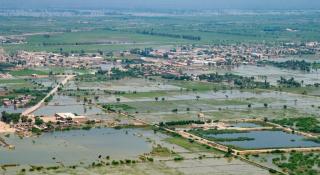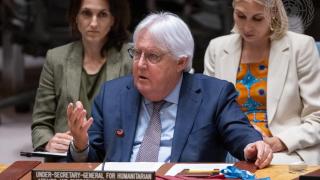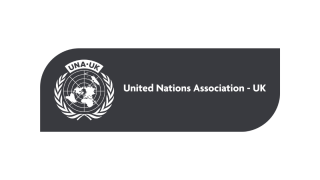
Pakistan’s Prime Minister has made an urgent appeal for climate justice, following the devastating floods between June to September 2022 that left a third of the country submerged under water and more than 1,700 dead.
Following this unprecedented climate-induced disaster that has left millions displaced and in urgent need of humanitarian support, the UN Secretary-General urged the world to wake up to the consequences of climate change. Pakistan is responsible for just 0.8% of global carbon emissions, and in the words of Prime Minister Shehbaz Sharif it is the “responsibility of the developed countries, who caused these emissions, to stand by us”.
Since the record monsoon season began in June, 90 percent of the country’s crops have been damaged and more than 1.1 million livestock animals lost. As of 4 October, 20.6 million people are now in need, with at least 7.9 million people displaced and 2 million houses damaged by the floods. WHO Director-General Tedros Adhanom Ghebreyesus has warned that the country is now on the verge of a public health disaster, facing an increase in child morbidity, disease outbreaks and increased malnutrition without urgent assistance.
To avert a “second wave of death and destruction”, last week the UN and its humanitarian partners raised their emergency funding request from $160 million to $816 million. While the international community has pledged billions in aid, the gap between what has arrived in Pakistan and what is needed is widening. The UN will be holding an international support conference later this year to seek more funding for reconstruction and rehabilitation.
Secretary-General António Guterres, following a visit to the flood affected areas, stated that the situation in Pakistan “demonstrates the sheer inadequacy of the global response to the climate crisis, and the injustice at the heart of it.” Extreme weather events are becoming more likely and more devastating and those least responsible face the brunt of these impacts.
According to the V20 – a coalition of some of the world’s most climate-vulnerable countries – climate change has wiped out one fifth of vulnerable countries’ wealth in the last 20 years. Vulnerable countries are rightfully increasing the pressure for a justice-based global response to loss and damage, with a focus on COP27 to deliver urgently needed advances. At the General Assembly, António Guterres called for rich countries to tax fossil fuel companies to pay for climate damages, making it clear this issue cannot be ignored.
In September the UK announced £15 million to support Pakistan, of which £5m is available to match donations made through the DEC Pakistan Floods Appeal, following criticism of their initial announcement of just £1.5 million. It is understood that the money will come from redistributing existing funding to Pakistan. While UNA-UK welcomes the recognition that this initial package of support was inadequate, we are concerned that the emergency support is being redirected from existing budgets for Pakistan in the context of dramatic reductions in aid spending to the country over the last three years.
We urge the UK to look to support Pakistan in recovery, adaptation and building resilience to climate disaster by reversing aid cuts and re-establishing much needed long-term assistance. UNA-UK also hopes the UK and other wealthy states will take action to help ease the burden faced by developing countries by making loss and damage a priority at COP27 next month, and ensure commitments are followed by action and financing.
How can you help?
UNA-UK encourages donations directly to organisations that are working to help those displaced by floods in Pakistan. Below are some of the organisations you can donate to:
Read more:
- See UNOCHA’s latest update on the situation here and the Pakistan Floods Response appeal here
- Read UN delegate calls at UNGA77 for developed countries to deliver on climate here
- Learn more about why addressing loss and damage is crucial here
- See UNA-UK’s work on climate change
- Read UNA-UK’s Climate Report 2020
Photo: An aerial view of the devastated landscape shot during Secretary-General António Guterres' solidarity visit to Pakistan where he witnessed the impact of the floods in the provinces of Sindh and Balochistan. Credit: UN Photo/Eskinder Debebe






